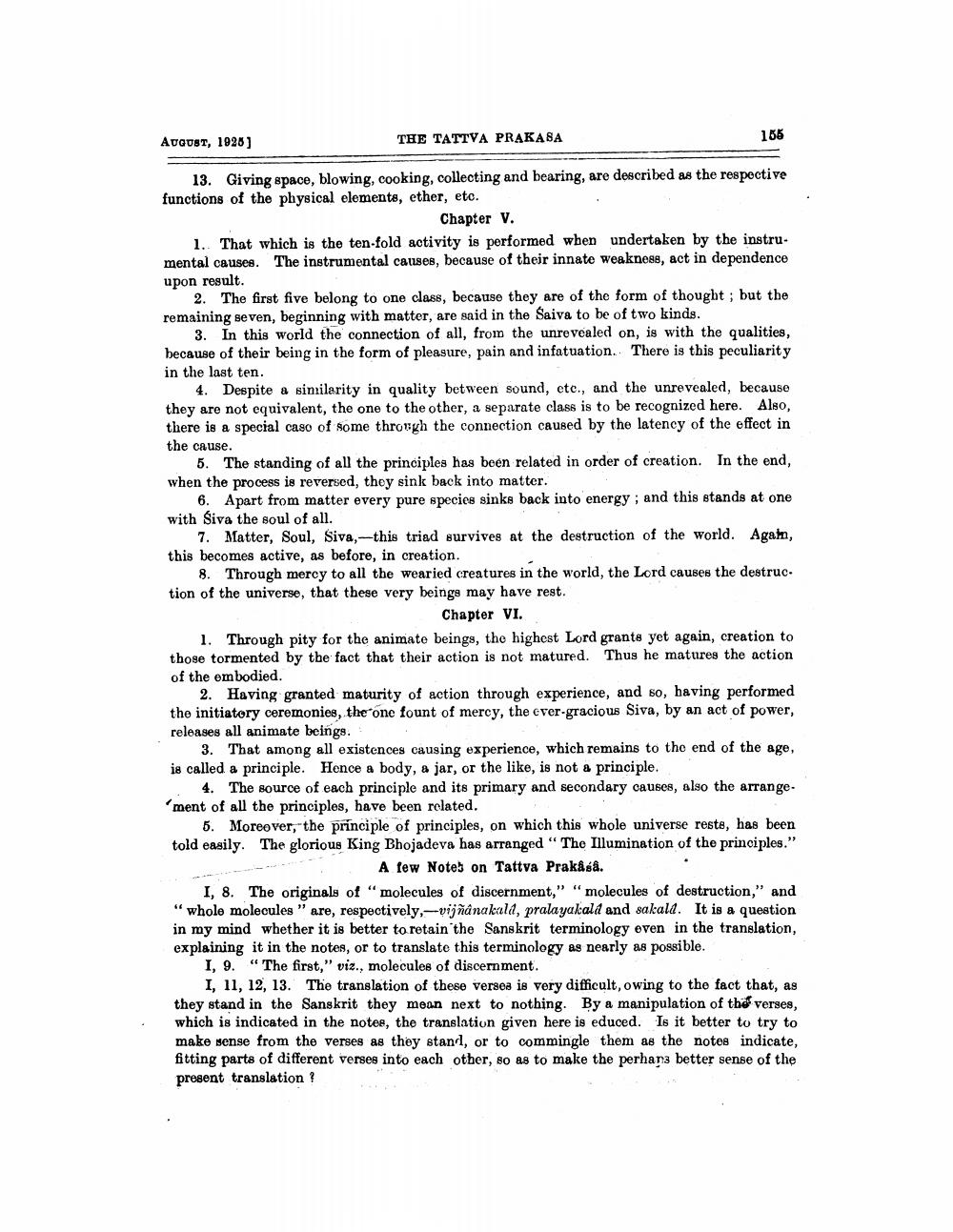________________
August, 1928)
THE TATTVA PRAKASA
165
13. Giving space, blowing, cooking, collecting and bearing, are described as the respective functions of the physical elements, ether, etc.
Chapter V. 1. That which is the ten-fold activity is performed when undertaken by the instrumental causes. The instrumental causes, because of their innate weakness, act in dependence upon result.
2. The first five belong to one class, because they are of the form of thought; but the remaining seven, beginning with matter, are said in the Saiva to be of two kinds.
3. In this world the connection of all, from the unrevealed on, is with the qualities, because of their being in the form of pleasure, pain and infatuation. There is this peculiarity in the last ten.
4. Despite a similarity in quality between sound, etc., and the unrevealed, because they are not equivalent, the one to the other, a separate class is to be recognized here. Also, there is a special caso of some through the connection caused by the latency of the effect in the cause.
5. The standing of all the principles has been related in order of creation. In the end, when the process is reversed, they sink back into matter.
6. Apart from matter every pure species sinks back into energy, and this stands at one with Siva the soul of all.
7. Matter, Soul, Siva,--this triad survives at the destruction of the world. Again, this becomes active, as before, in creation.
8. Through mercy to all the wearied creatures in the world, the Lord causes the destruc. tion of the universe, that these very beings may have rest.
Chapter VI. 1. Through pity for the animate beings, the highest Lord grants yet again, creation to those tormented by the fact that their action is not matured. Thus he matures the action of the embodied.
2. Having granted maturity of action through experience, and so, having performed the initiatory ceremonies, the one fount of mercy, the ever-gracious Siva, by an act of power, releases all animate beings.
3. That among all existences causing experience, which remains to the end of the age, is called a principle. Hence a body, a jar, or the like, is not a principle.
4. The source of each principle and its primary and secondary causes, also the arrange'ment of all the principles, have been related.
5. Moreover, the principle of principles, on which this whole universe reste, has been told easily. The glorious King Bhojadeva has arranged "The Illumination of the principles.”
A few Notes on Tattva Prakaså. I, 8. The originals of "molecules of discernment," "molecules of destruction," and "whole molecules " are, respectively,--vijñánakald, pralayakald and sakald. It is a question in my mind whether it is better to retain the Sanskrit terminology even in the translation, explaining it in the notes, or to translate this terminology as nearly as possible.
I, 9. "The first," viz., molecules of discernment.
I, 11, 12, 13. The translation of these versea is very difficult, owing to the fact that, as they stand in the Sanskrit they mean next to nothing. By a manipulation of the verses, which is indicated in the notes, the translation given here is educed. Is it better to try to make sense from the verses as they stand, or to commingle them as the notes indicate, fitting parts of different verses into each other, so as to make the perhaps better sense of the present translation ?




